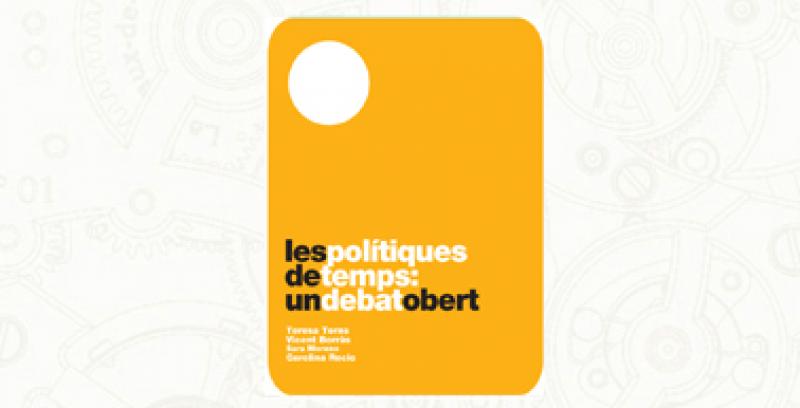Time dossiers
The time dossiers approach in an informative and concrete way different topics that affect the social uses of time in the municipal area and its connection with the welfare and quality of life of the citizens.
-
Time, needs and consumption. Sustaining life in the city
Authors: Charo Morán, Helena Pariente, Yayo Herrero
Barcelona, 2024
This dossier relates time policies to the problem of needs and consumption. A difference is established between consumption that covers human needs and consumerism (unsustainable for the planet and unsatisfactory for people's lives). In addition, public policy proposals are made, fundamentally framed in the urban context, which interrelate consumption, consumerism and time from a feminist perspective. (in Spanish).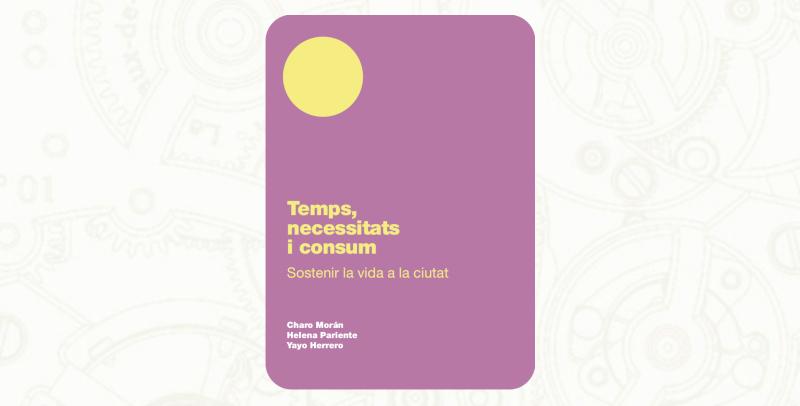
-
From poverty of time to time for life. Theoretical approaches and practical guidelines
Authors: Sonia Ruiz, Georgina Monge, Blai Martí and Ana Paricio
Barcelona, 2023
This dossier addresses the issue of time poverty and lack of time in our society. It highlights the need to reduce the inequalities generated by the unfair organization of time and analyzes how this impacts especially on women and vulnerable people. The focus is on moving from time poverty to the right to time for life through interventions and public policies.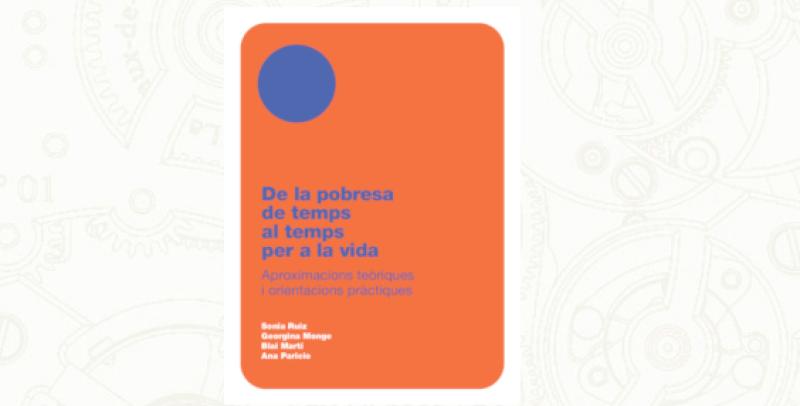
-
Time for life: a contextualized reflection on a sustainable city
Authors: Charo Moran, Helena Pariente, Yayo Herrero
Barcelona, 2022
Half a century ago, in 1972, the Meadows Report on the limits to growth was published.1 It warned of the obvious unfeasibility of permanent population growth and consumption. It warned that, in a physically limited world physically limited world, permanent growth in the extraction of materials, water pollution of material extraction, water, land and air pollution, degradation of ecosystems and the degradation of ecosystems, and of population and its consumption was simply not possible.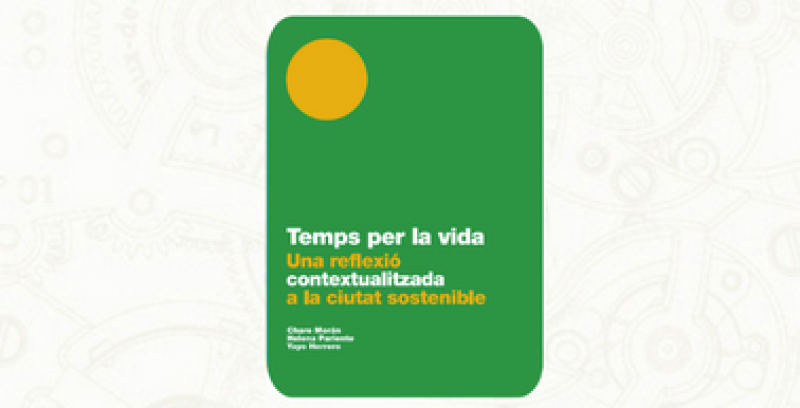
-
Working time, crisis and flexibility: between temporary, part-time and atypical working hours
Authors: Sara Moreno Colom, Vicent Borràs Català i Marc Ajenjo Cosp
Barcelona, 2022
The time devoted to paid work is a fundamental element in the organisation of society, cities and everyday life. Paid working time is the central axis around which people's lives revolve, so that any transformation in terms of time and work within the labour market has repercussions on social organisation and everyday well-being.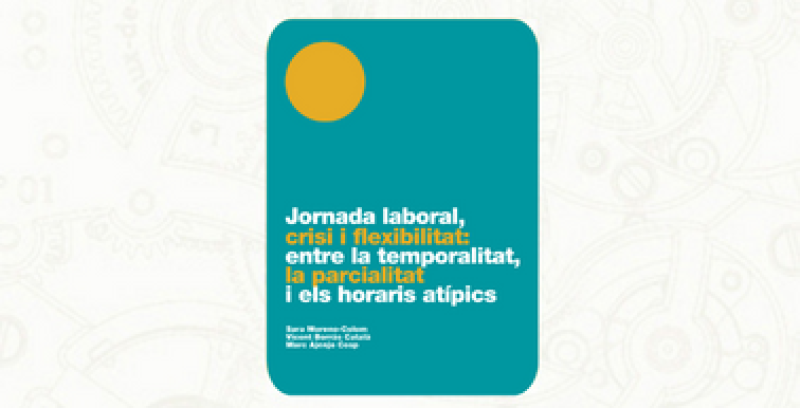
-
Time, citizenship and inequalities
Authors: Matxalen Legarreta Iza and Marina Sagastizabal Emilio-Yus (University of the Basque Country UPV/EHU)
Barcelona, 2020
A reflection on the uses of time and social inequalities from a perspective that interprets the organisation of time as a right of citizenship, analyses inequalities and values the data on the occupation and distribution of daily time produced by the Basque Institute of Statistics-Eustat, on a five-yearly basis, between 1993 and 2013.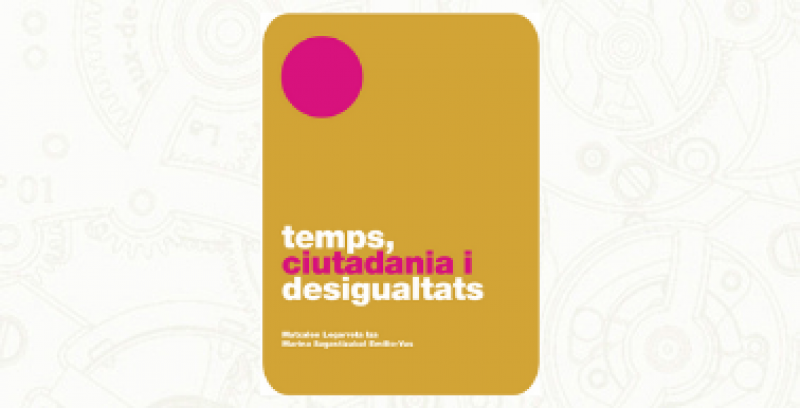
-
Use of time and community management
Authors: Rubén Martínez, Nuria Alabao, Mauro Castro and Jaime Palomera of La Hidra Cooperativa.
Barcelona, 2016
Studies the relationship between the uses of time and community management in our city and, in particular, the role of communities in the context of the economic crisis. It asks, among other questions, whether people can subsist and strengthen their quality of life by cooperating and sharing, without the need to assume the hegemonic market as an organisational model, and what these practices are and how they work, and then analyses some of them and illustrates them with examples of citizen cooperatives.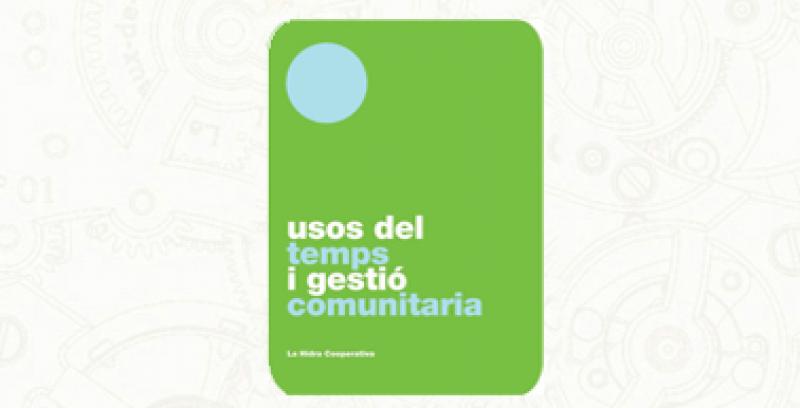
-
Time to grow, time for growing
Authors: Carme Gómez-Granell and Albert Julià
Barcelona, 2015
The book takes a look at the times and spaces of children and adolescents: from family and education, to leisure, entertainment and friends. It is based on data from two surveys carried out by the Consorci Institut d'Infància i Món Urbà (CIIMU) -Panel de Famílies i infància (PFI) and the Survey on Inter- and Intragenerational Relations. A billboard with conclusions and proposals to promote policies for work-life balance and the promotion of extracurricular activities that reduce inequalities between children and adolescents.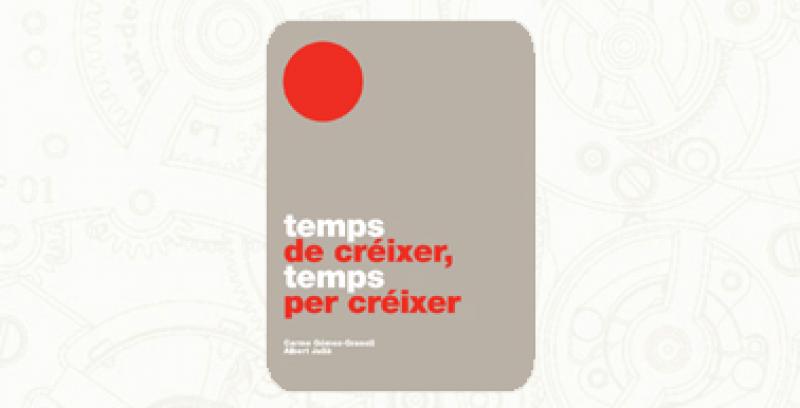
-
Habitat and time for coexistence
Authors: Pilar Garcia Almirall, Adriana Ciocoletto and Blanca Gutiérrez
Barcelona, 2014
The study, focused on two neighbourhoods in Barcelona, emphasises the influence of the urban configuration on people's lives and the interaction of the autochthonous and immigrant people who live in these environments. It explains with graphic elements the links between physical elements (public spaces, streets, facilities...) and social elements (how people use space, how much time they spend, what they do...).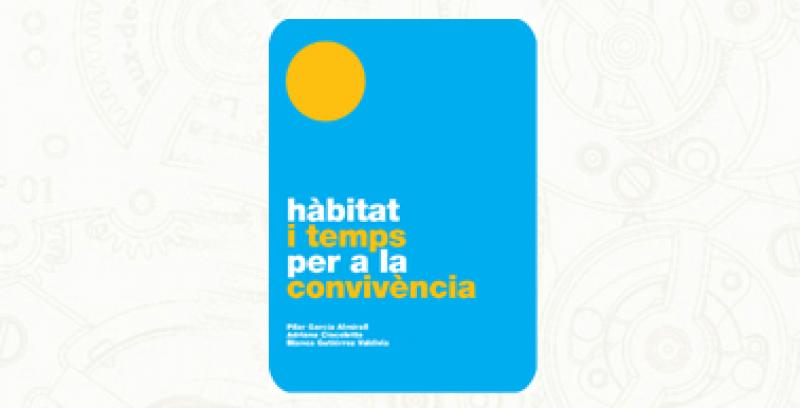
-
Time and elderly
Author: Gabriela del Valle Gómez
Barcelona, 2014
Based on statistical data from the city of Barcelona, the study delves into the use of time by the city's elderly. The tasks of caring for others and their own health-related care and the construction of a new life project for this stage of life form the core of the use of time of this sector of the population. The study also addresses the evolution of the use of time during leisure time or training and has a bearing on the role of the city in promoting active ageing through mobility, volunteering or accessibility policies.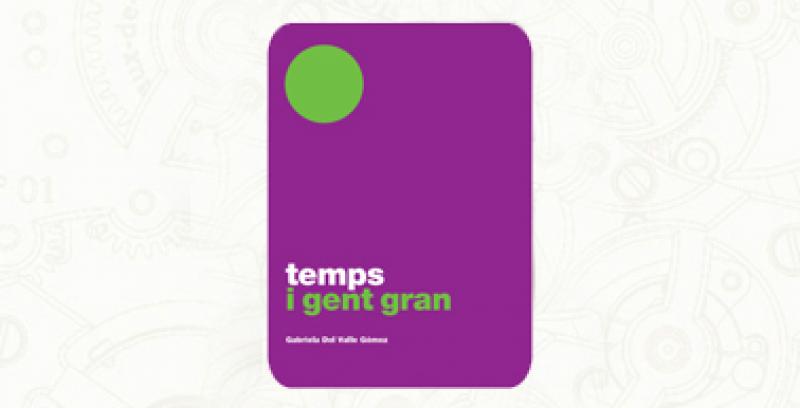
-
Youth and time: towards a utilitarian politics.
Author: Fabian Mohedano
Barcelona, 2012
This dossier deals with the uses of time of the young population; it brings together a series of proposals for educational, social, economic and political planning aimed at harmonising young people's time. The work aims to demystify the idea that young people have all the time in the world and highlights how deficits in the organisation of time have repercussions on the lives of this sector of the population.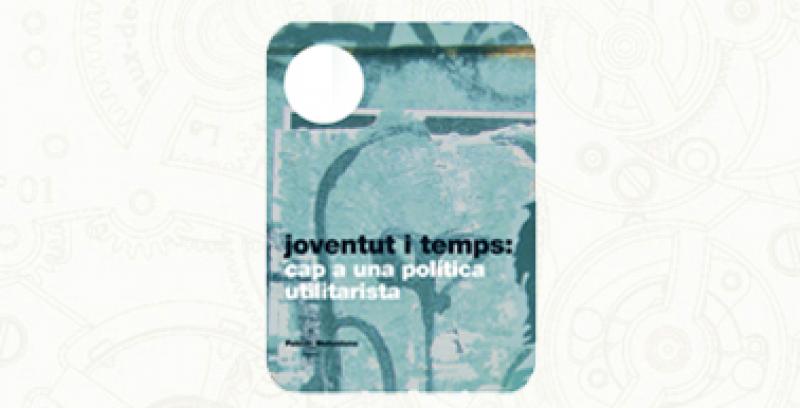
-
Uses of time and the city
Authors: Josep Maria Montaner and Zaida Muxí Martínez
Barcelona 2011
Based on the urban changes that took place in cities during the last quarter of the 20th century, the dossier reflects on the evident crisis of an urban model marked by consumption and exploitation of the territory. It places special emphasis on urban planning from a gender perspective, the rhythm of the city, everyday networks and public space. The book closes with a series of proposals, a questionnaire that allows us to evaluate the adaptation of urban planning projects to the good times and questions that propose thinking about the organisation of the city from this perspective.
-
Time, care and citizenship. Private and public co-responsibilities
Author: Cristina Brullet
Barcelona, 2010
This dossier analyses the problems that exist between family transformations, citizenship rights and the time of people's care. From an overview of the general framework of the problem, the dossier studies the situation, in particular, of young children and dependent persons in Catalonia and Barcelona, and provides recommendations to increase and improve the articulation and sharing of care between society and public institutions.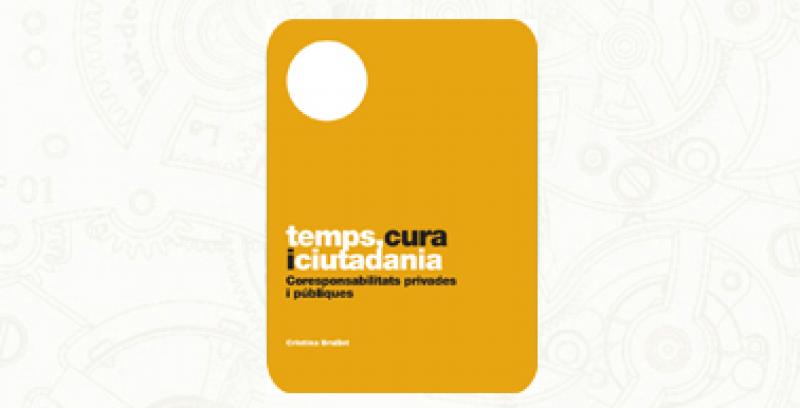
-
Time and culture
Language: Spanish
Authors: Xavier Fina and Carles Spà
Barcelona, 2007
Cultural consumption, which is closely linked to leisure time, is one aspect that is most greatly affected by the rhythm of everyday life. Taking statistical data as its starting point, this dossier studies the relation between time and culture from the perspective of cultural production, programming and consumption. The study concludes with a series of recommendations for future cultural policy.

-
Men and their time: hegemony, negotiation and resistance
Authors: Paco Abril, Alfons Romero and Vicent Borràs
Barcelona, 2009
This document dissects the relationship between men and time in a society that calls for a drift towards positions of equality and diversity, in which gender relations are equitable. The study shows the different masculine attitudes in relation to time and includes a series of proposals for action that can be useful to promote the inclusion of men in time, gender and equality policies.
-
Use of time and health
Authors: Silvia Rueda, Lucía Artazcoz and Imma Cortès
Barcelona, 2009
This study analyzes gender and social class inequalities in the use of time throughout three stages of the life cycle (people from 16 to 24 years of age, from 25 to 64 years of age and over 64 years of age) and their relationship with the state of health and the habits associated with the availability of their own time to dedicate it to their care.
-
The organisation of working time, competitiveness and quality of life
Language: English
Authors: Albert Coromines, Anna M. Coves, Amaia Lusa, Jordi Ojeda and Rafael Pastor
Barcelona, 2009
Working time is organised according to the amount and distribution of time available and the duties that each working person has to perform at different moments. This dossier provides tools to help reconcile a company's efficiency with the quality of life of the people who work for it.
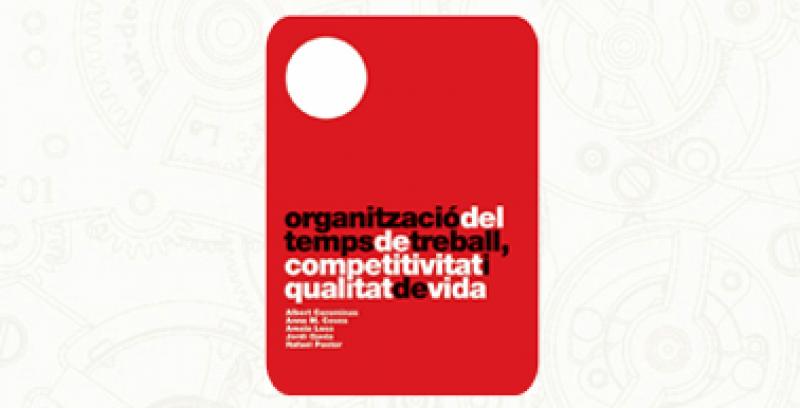
-
Uses of the time and mobility
Language: Spanish
Author: Carme Miralles-Guasch
Barcelona, 2006
The time that people spend on everyday travel is characterised by both a spatial coordinate ? use of the city ? and a time coordinate ? the social use of time. This dossier, which discusses these two parameters and their relation to each other, closes with a discussion of the specific reasons for travel, the time spent travelling and the means of transport used.
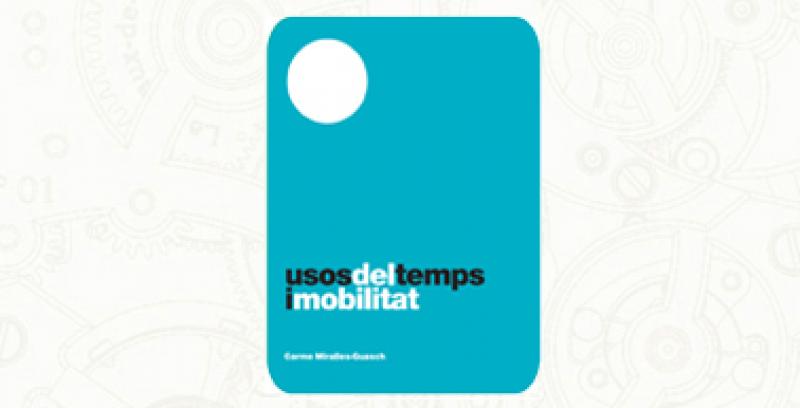
-
Uses of time and families
Language: Spanish
Authors: John MacInnes and Montse Solsona
Barcelona, 2006
Based on data on Catalonia taken from the 2002-2003 INE survey of time use, this dossier explores the different types of families that exist nowadays, and their relations with time. Conclusions are drawn about the availability of free time and management of personal time, taking into account individual and family life cycles in Catalonia, and comparing these aspects with the situation in the rest of Spain.
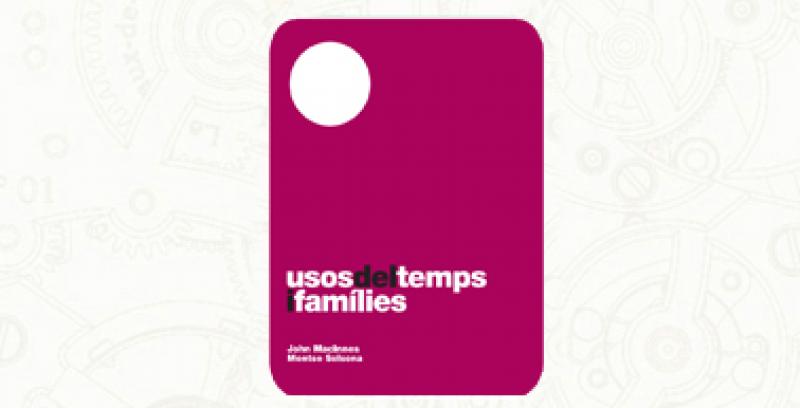
-
New times, new uses and new technologies
Language: Spanish
Authors: Laura Canet, Cristina Grisolia and Raquel Querol
Barcelona, 2006
This dossier is devoted to analysing the new perspectives and possibilities generated by the interaction between time and the new technologies, which provide useful tools for reconciling personal, working and family life.

-
Time policies: an open debate
Language: Spanish
Authors: Teresa Torns, Sara Moreno, Vicent Borràs and Carolina Recio
Barcelona, 2006
A report on public time policies in Europe, drawn up from a conceptual and geographic perspective and examining their achievements and shortcomings. The study opens with a historic overview before going on to discuss specific initiatives and measures implemented in Europe and, finally, to provide an inventory of time policies and their influence on everyday wellbeing.
